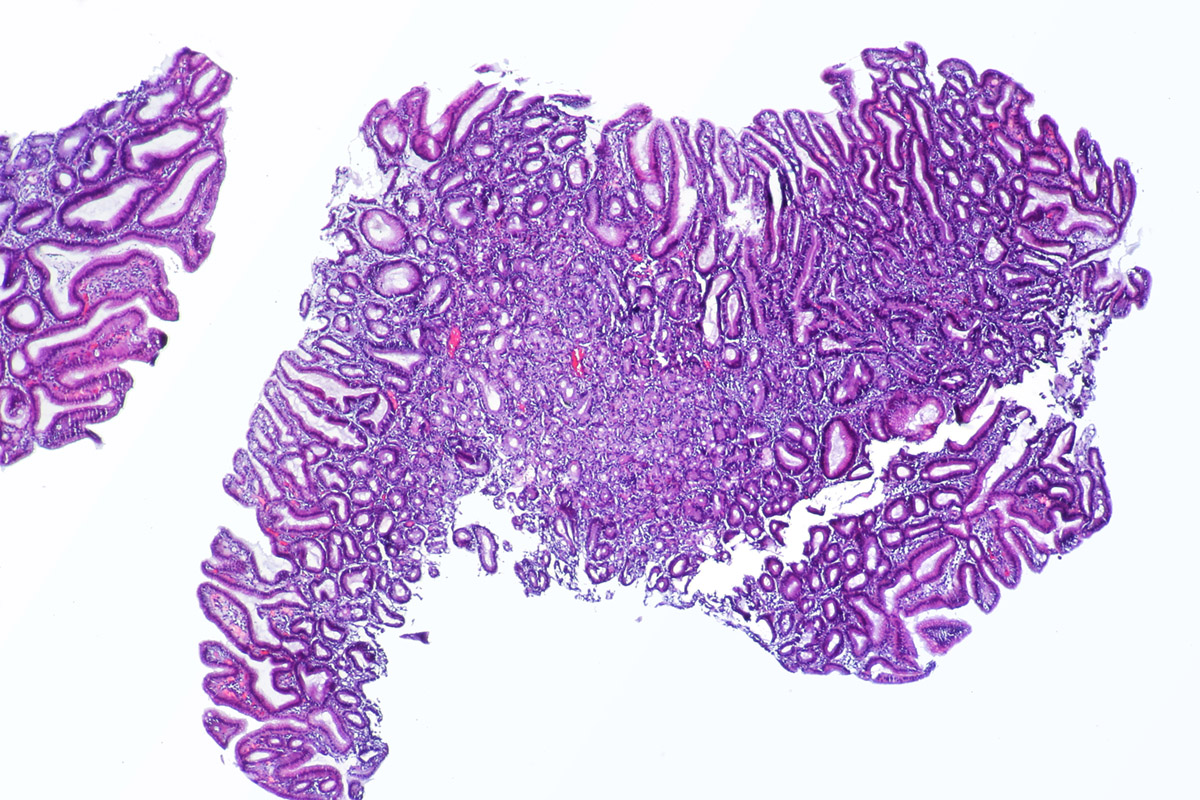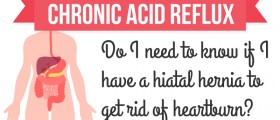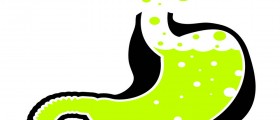
Bile reflux is a condition in which bile, a digestive fluid produced by the liver, flows upward from the small intestine into the stomach and esophagus. The condition generally accompanies acid reflux. Both disorders, bile and acid reflux, may cause serious damage and leave consequence on one's health. One of the potential complications associated with bile reflux is esophageal cancer. Bile reflux simply cannot be controlled with dietary changes. It is treated with medications and in case they fail to provide with desirable results one undergoes surgery.
Clinical Characteristics of Bile Reflux
Symptoms and signs of bile reflux are similar to symptoms and signs of acid reflux. Namely, it may sometimes be hard to distinguish one condition from the other particularly if both of them occur simultaneously. Still, the most common symptoms of bile reflux include burning pain in the stomach (a consequence of inflammation of the stomach lining), frequent heartburn, nausea, vomiting bile, cough or croakiness in the throat.
If left untreated bile reflux may eventually lead to gastritis and in severe cases there is a chance of stomach ulcers, bleeding and even chronic gastritis and stomach cancer. Another complication of bile reflux is gastroesophageal reflux disease. Prolonged exposure of the esophagus to bile carries risk of Barrett's esophagus, change in epithelial structure of the lower esophagus which significantly increases risk of esophageal cancer. And finally, in case of chronic exposure of esophageal mucous membrane to bile the exposed tissue is highly likely to scar. Excessive scarring leads to formation of strictures, narrowing of the esophagus and subsequent swallowing difficulties.
Treatment for Bile Reflux
Ursodeoxycholic acid is a medication used for bile reflux. It is prescribed and helps in promotion of bile flow. The drug can effectively reduce the frequency of symptoms and the intensity of pain associated with bile reflux. In case the condition develops due to delayed stomach emptying the patient can be prescribed drugs which increase the rate at which food leaves the stomach. Proton pump inhibitors are medications commonly prescribed to people suffering from GERD and Barrett's esophagus. Apart from being effective in acid reflux disease these drugs may also control symptoms associated with bile reflux.
Chronic bile reflux generally does not respond to medications and is treated surgically. The surgery is reserved for cases that do not respond to standard conservative treatment and also for people with precancerous lesions caused by chronic irritation with bile. Patients suffering from chronic bile reflux may undergo several surgical procedures including diversion surgery and anti-reflux surgery.

















Your thoughts on this
Loading...